 trange reports are circulating on the Internet about foreign objects
resembling “worms” and “manufactured objects”
seen when people examine vaccine samples under the microscope. There is
actually a simple explanation.
trange reports are circulating on the Internet about foreign objects
resembling “worms” and “manufactured objects”
seen when people examine vaccine samples under the microscope. There is
actually a simple explanation.
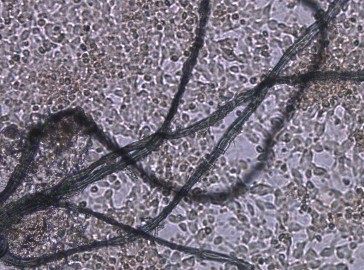
Fig. 1. Blue fibers in Alzheimer's disease sample
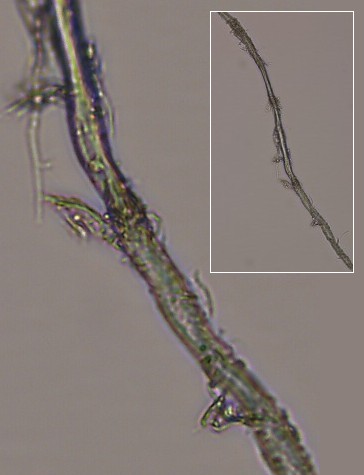
Fig. 2. A colorless fiber found in the cells. It almost appears as if small insect-like creatures are budding from the side. Inset shows lower magnification
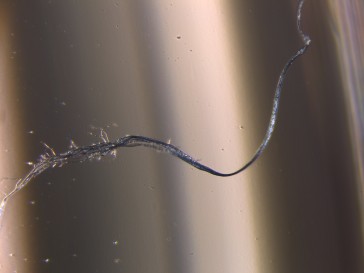
Fig. 3. Fiber with ragged texture
Last November, I started finding similar fibers in my cultured cells to which I had added an extract from an Alzheimer patient. At first glance, it appeared as if the Alzheimer extract was either contaminated or inducing the growth of some strange fibers. Some were blue colored (Fig. 1), but most were colorless and transparent. To photograph them clearly, I had to use differential interference contrast or DIC, which is a standard way of using their refractive index to make them visible.
Some had small protrusions on the side which resembled tiny insect-like creatures budding off the side (Fig. 2). Others had a more fibrous appearance (Fig. 3).
When stained with SYBR Gold, which binds to DNA, the fibers gave off a strong green fluorescence. Some resembled manufactured objects but this one resembled a tiny worm (Fig. 4).
To track down the source of these fibers, I looked at everything that went into the culture: the medium, the fetal bovine serum (FBS), the empty culture flasks—everything that had ever been used in the experiment. None of them contained fibers. But when they were mixed together, a fiber showed up.
It turned out that these fibers are not living things, nor are they produced by any disease processes. They are tiny bits of those little syringe filters that we use to sterilize our solutions before putting them on the cells. These filters are disk-shaped and fit on the end of a plastic syringe. Their purpose is to prevent bacteria from contaminating the cells. If not removed, bacteria would multiply and kill the cells. The pressure from the syringe causes pieces to break off the filter.
Some filters are worse than others; some contain Teflon (PTFE), while others are made of other materials like polyethersulfone (PES), nylon, PVDF, glass fiber, regenerated cellulose, or cellulose acetate that can break off under the strong pressure needed to get a liquid to go through them.
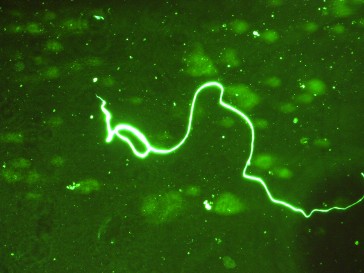
Fig. 4. Worm-shaped fiber found in extract of cell nuclei
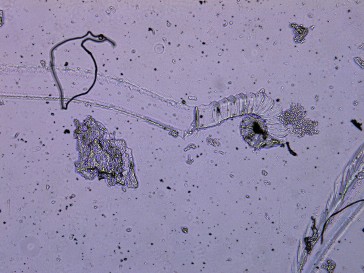
Fig. 5. Hollow fiber tube of unknown origin
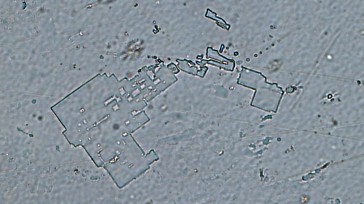
Fig. 6. Alien microchip structure . . . no wait, wrong picture . . . crystal formed by evaporation
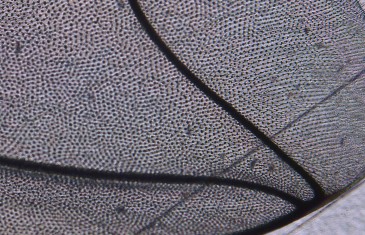
Fig. 7. Wing from a small black helicopter-style drone
Some people have made movies of these fibers bending or twisting in the air as if alive. This is also easy to explain: the fibers change shape and may curl up when they dry out.
Cryoprecipitates
Another type of foreign material that often shows up is cryoprecipitates. These are clumps of aggregated material that are produced when a solution containing proteins, DNA, or RNA is frozen. Vaccines, of course, contain such substances, along with adjuvants which could crystallize or precipitate at cold temperatures. Cryoprecipitates can resemble clogs of hair, while crystals, especially those produced when a sample dries out on the slide, have an amazing manufactured appearance, like tiny machines made by extraterrestrials.
Cryoprecipitates are a constant source of annoyance: you dissolve your protein, create a nice clean sample, stick it in the freezer, and the next day it's full of clumps.
Here's the most interesting thing I found (Fig. 5). It looks like a tiny piece of tubing that's been crinkled up into a spiral shape. Next to it is a circular fiber and a large piece of something with regular angled edges that we scientists call “dirt.” I can assure you I didn't manufacture it, and I'm positive no extraterrestrials were in the lab that day.*
Fig. 6 is what you get when you forget to use a cover slip and your sample dries out.
I also never let Bill Gates in my lab, and I especially do NOT let him anywhere near my computer.
These things don't just fool amateurs. A colleague of mine who had a degree in physics and started doing biology insisted that the clumps he was observing were markers for disease. A quick glance at his protocol showed that he had neglected to filter his fetal bovine serum (FBS). FBS is widely used in cell culture because it contains growth factors needed by the cells. It's insanely expensive (the high quality stuff can cost $1000 for a half-liter bottle), and it's always stored frozen—which causes clumps—so it's essential to filter it even though the manufacturer has already sterilized it.
Finally, in our lab I found this strange object (Fig. 7). This is a closeup of the wing from a tiny black helicopter-like drone with unusual flight characteristics. These UFOs make a faint buzzing sound and congregate around the light fixtures. When sprayed with Windex, they dive toward the floor. This one had crashed and had become inoperative. Clearly, they were placed in the lab by the Russians.
* No one to my knowledge has suggested extraterrestrials played any role in the vaccines, but I thought I'd cover all the bases.
jan 15 2022, 6:37 am. updated feb 02 2022 4:00 am
